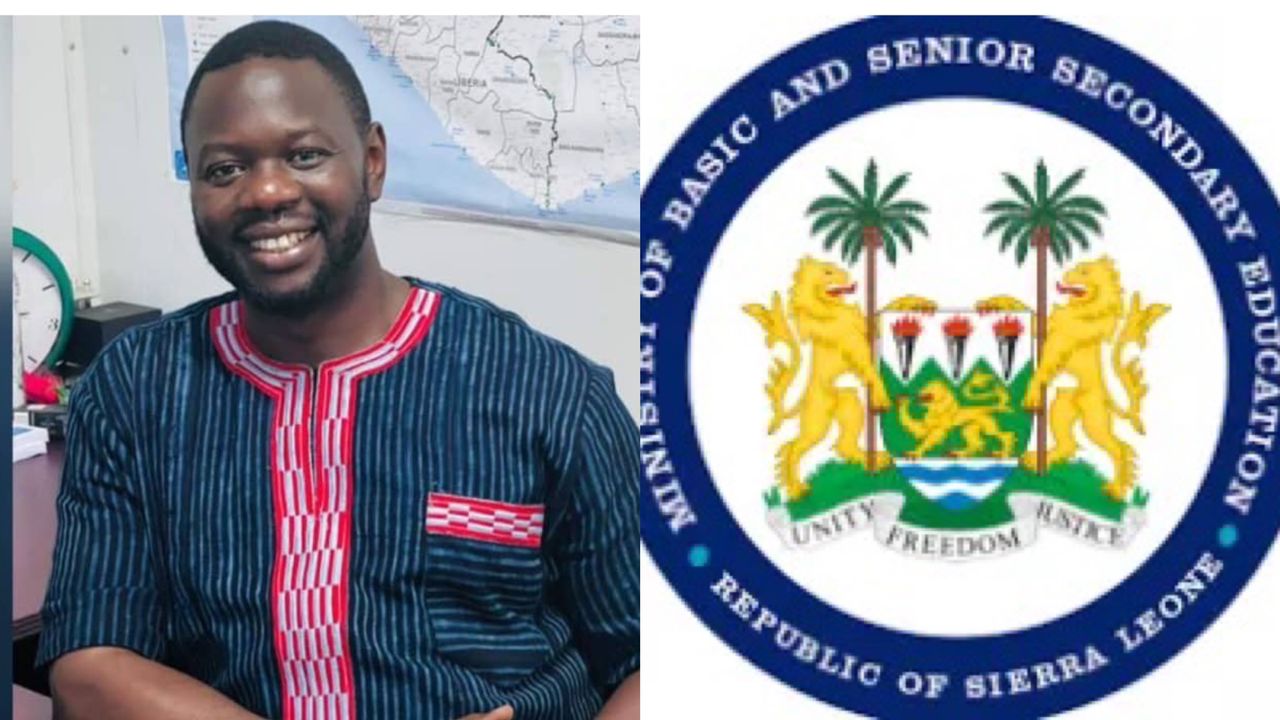By Alhaji U. N’jai
The reality of cheating and fake educational achievements from primary schools through secondary and colleges today in Sierra Leone is an epidemic that should be declared a national emergency for the survival and prosperity of the nation state.
The sad reality is that we are busy focusing on political point scoring rather than addressing a cancerous situation that could lead us to further mediocrity as a people. Education that leads to human excellence is far more holistic in nature than merely syllabuses and standardised exams.
Something is amiss when you realise that you are producing more graduates, yet you are retrogressing in various aspects of professional needs and relying on foreign trainees to execute those tasks for you.
Our educational system calls for introspection. If deceptively celebrating 100 percent passes in the standardise exams is the goal, then we should merely just abolish them. Just allow everyone to move onto college and save the population from additional fees. If cheating is celebrated and fake degrees/certificates/awards go unpunished, why do I need to work hard; why do I need to display sense of integrity.
If I work hard and do the right things but failed and others who did less, pass with flying colors, why do I need to work hard. If those who cheat their way through school examinations and those who fake degrees/awards are celebrated in society, what that says about ethical standards in our society.
How do we effectively fight corruption and promote quality in our educational systems, when the focus is political point scoring and celebration of falsities. Our current educational situation and decadence at all levels calls for deep introspection on what we have become and where we are heading as a society.
Education is much more than merely increasing literacy and numeracy levels in a country. The neoliberal agenda of promoting literacy in English or our colonial languages has only served to promote western hegemony, alienate us from our people, and render us impotent as far as development and domestication of modernisation is concerned.
Our impotency and inability to solve our own problems, perpetual dependencies, poverty in the midst of plenty is largely opaque, even though we are now recording 95 percent literacy levels and graduate more students from universities.
Why is the gron still dry? Why are we still food poor? Why are the Chinese, Turkish, and so on with limited English literacy making our roads and airports? The literacy and numeracy benchmarks work well to attract neoliberal donor funds and money but in reality, have done very little to create collective economic success along equity and social justice; something that is extremely important for us in Africa, where communal relationships and cultural pluralism are ever so present.
The truth is Education that leads to social or cultural empowerment and Literacy are fundamentally different. In the same manner, Education as in academic degrees and enlightenment are fundamentally different.
Education without enlightenment produces dependency, retrogression, and tragic mishaps for society. Enlightenment is at the core of consciousness, disruptive innovation, building social capital, and greater ownership of one’s resources. Education along with enlightenment creates progress, transformational change, and development based on domestication of Modernization.
In the same vein, the use of digital technologies in schools for learning, which are merely enabling tools, often conduits for globalization, colonialism, dependency, and expansion of market economies must not be confused with education that leads to social empowerment and decolonisation.
Obviously, when it comes to information communication technologies (ICTs), the realities of 10 or 20 years ago are far different from our present realities; some of the technologies have become accessible, cheap, adaptable, and can be implemented easily. For instance, with mobile technology today, it is no longer rocket science to get school results delivered to parents or students; something that will have been a daunting task some 10 to 20 years ago.
In the 1980s to 90s, one can easily obtain a PhD by studying a single gene like p53 that regulates apoptosis in the cell. Today with the advent of genomic science, access to sequencers, next generation technologies, and so on, you can gene expression of 10K genes, and still not sufficient to earn you a PhD.
I believe education is not just about the free and the quality, what we are missing in Sierra Leone is an ideology around it that sufficiently integrates our cultural experiences towards expanding local production, consumption, and at the same time building sense of national identity, cohesion and patriotism. To achieve these standards, our universities in Sierra Leone must play a greater role.
A radical transformation of the university systems from being agents of western imperialism and dominance to agents of decolonisation and social empowerment. The process must start with having tougher university entry exams for all disciplines and an overhaul of colonial or neo-colonial brainwash curriculums that limits local ingenuity, innovation, and sense of self.
Beyond slogans and mere words, radical educational programs must tilt towards a decolonized curriculum that empowers our Africanness along the seven lenses of culture Prof. Ali Mazrui put forward.
In so doing, our culture within our educational framework can drive development through it serving as, a spring of motivation, or standard of perception, our standard of judgment, our basis of stratification, our means of communication, our means of production and consumption, and above all our basis of identity.
Education is at the core of our national development and therefore it’s decadence must be treated as an emergency epidemic akin to Covid-19 or Ebola.
About the author
Alhaji U. N’jai is a Senior Scientist, Professor, Panafrican Scholar, Founder & Chief Strategist of Project 1808, Inc., and Freelance writer ‘Roaming in the Mountains of Kabala Republic’. #Jata #Meejoh #ThePeoplesScientist.








